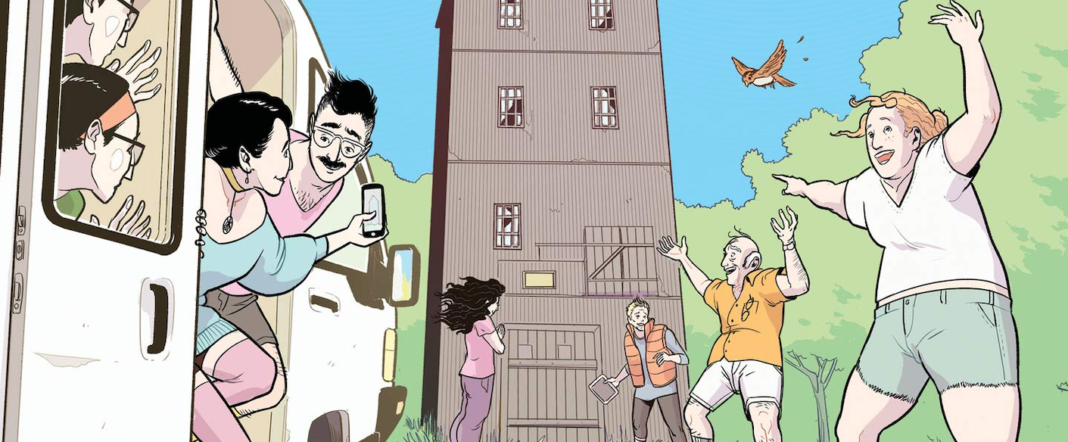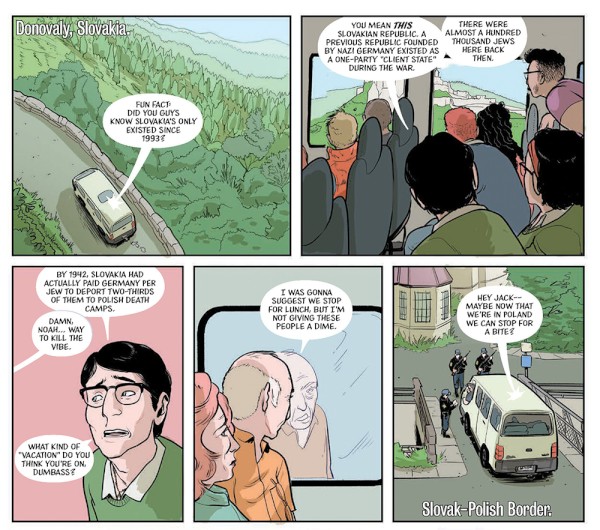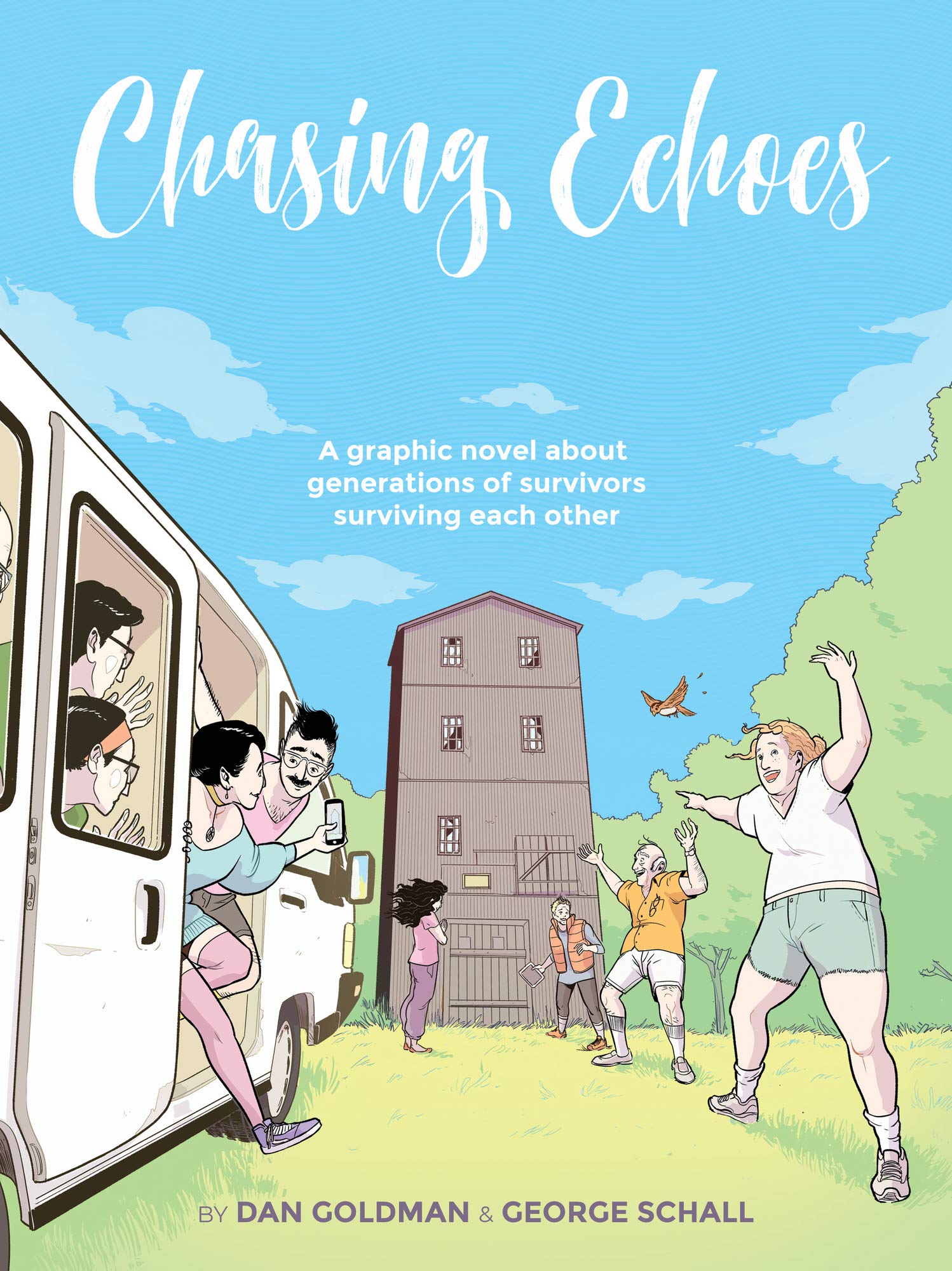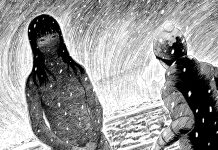Earlier this month, I named Chasing Echoes (Humanoids) as one of the best comics of 2019. There were many variables for why this was, but the most critical for me was the notion that this was a story that kept gnawing at me after I finished it. I wanted to delve deeper into the Jewish family at the heart of the book — the Blooms — and really think about what made them tick, what inspired them, and what drove them within the narrative to behave how they did. It is always fascinating to me to explore narrative history as catharsis and to see how reckoning with the past paves the way for the future.
Luckily, I was able to delve deeper into the story of Chasing Echoes when I chatted with author Dan Goldman. Goldman, a veteran screenwriter, based the book on his own experiences going on a family trip to the Old Country to find its roots. On the eve of Hanukkah, where Jews the world over remember the miracle of light over darkness, reading a book about the descendants of Holocaust survivors seems like a welcome proposition.
When I sat down with Goldman, I asked him about what inspired him to write the book, Jewish identity in contemporary society, and how it feels to go to an Elton John concert after touring Auschwitz.
AJ FROST: Hi Dan. It’s great to chat with you. Can I start by asking about the inspiration behind the story of Chasing Echoes? It’s such a broad, yet nuanced, tale about family, faith, and history that I feel it must have many real-life influences guiding it. What compelled you to write this comic?
DAN GOLDMAN: Thank you, that’s very kind. About half of the book is true: the trip the Blooms take is a trip I went on with my family. It was very transformative and we all came home a little different. I was flying home from Warsaw and the experience suddenly began to feel complete and self-contained, like a good story. I made notes most of the flight, getting down things I didn’t want to forget as time passed—but I didn’t really know when or in what format the story would emerge later.
It sat in my notebook—and my brain—for about a year after that. The experience of visiting your ancestral home, it made this abstract “Old Country” of my imagination real. And that reconnection of a family of assimilated Americans to their roots felt like a story many people could see themselves in, no matter where their families came from.
FROST: Are the Bloom family and their offshoots—the main family featured in Chasing Echoes—based on a real family? How did you go about creating the personalities of each member of the family here? Are they based on any members of your own family?
GOLDMAN: While the trip’s itinerary is real, the family is invented. I come from a lineage of over-sensitive Jews who get their feelings hurt easily, so it was really important that they’d be proud of me for doing this work instead of feeling betrayed and promising never to speak to me again. Thus my family’s characteristics, looks, foibles, and circumstances were all remixed into the Blooms. That, surprisingly, took a lot of time. And when I delivered the script to Humanoids, I know they were caught off guard. I think they were expecting something more strictly autobiographical, but there were several reasons I didn’t think that approach was best, and not hurting my family was definitely up there.
FROST: Can you talk about Malka Solomon, one of the book’s primary characters? When we meet her, she is the family historian, yet her life is in shambles. Is she based on anyone in particular?
GOLDMAN: The character of Malka is the other reason I didn’t want the story to be autobiographical. Malka’s loosely based on one of my cousins who was going through some (different) heavy shit in her life, and to me, that made her own journey the most interesting perspective on the family trip. The more I turned the story over and over, Malka had to be the protagonist… and Uncle Jack the clear antagonist. They both felt like opposing forces, even though everyone was on the same mission to reconnect the present with the past.
I let that play out against the way Malka’s presence affected the rest of the trip—and how the family members chose sides over her. That upped the stakes for her and Jack to deliver what the family wanted to get out of the experience, changing their relationship in the process.
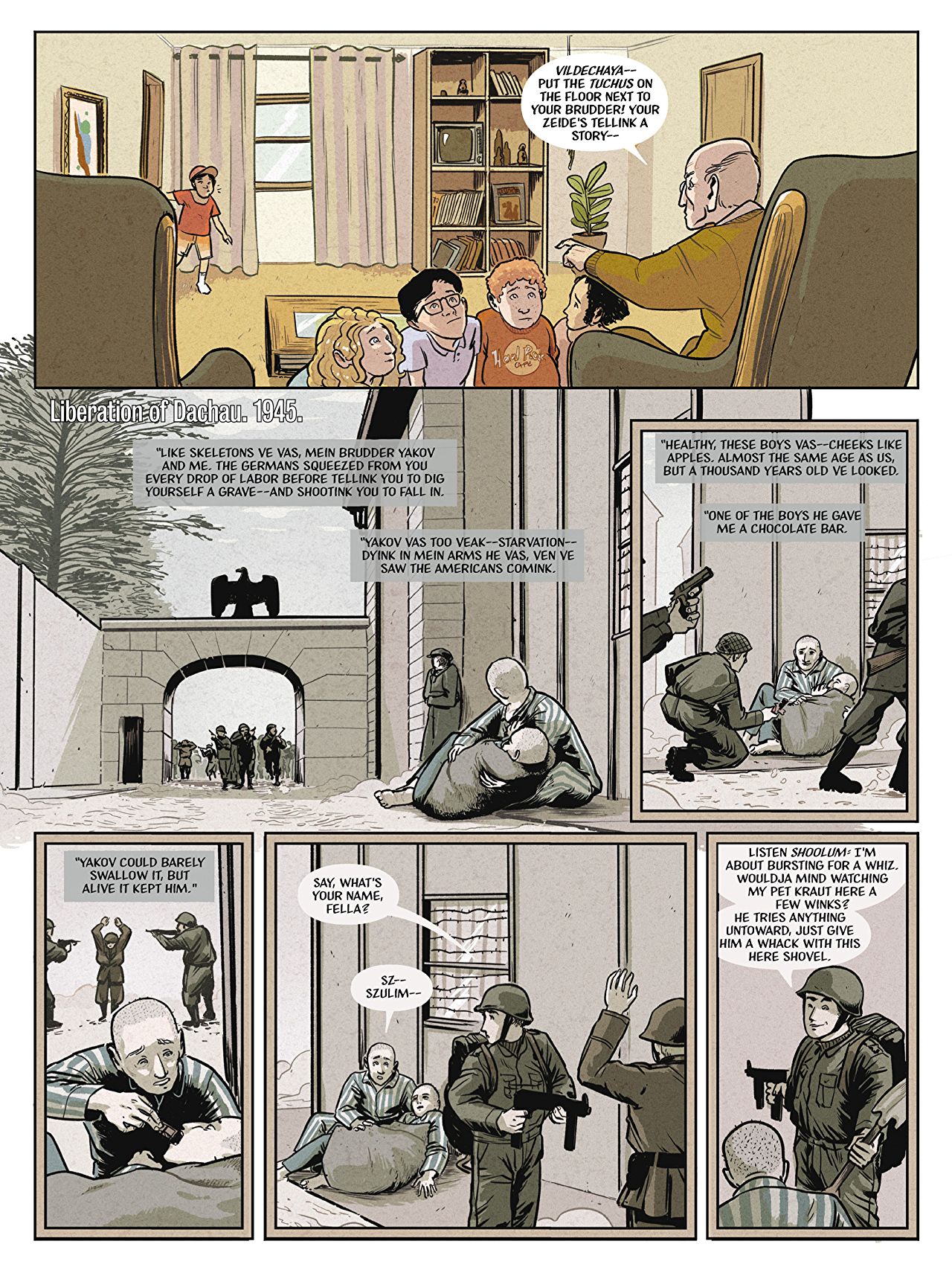
GOLDMAN: All these characters on this bus across Poland self-identify as “Jewish” but that meant completely different things to each of them. That’s something I wanted to explore, especially as they ride into their shared history while reconnecting with each other at the same time.
A lot of the struggles in the air between them, about faith and God and reconciling those with the Holocaust and family tragedy are mine. I’ve had many discussions trying to unpack questions that are fundamentally unanswerable without leaning on faith or tradition, which I always felt like a total cop-out to me… but to those who believe, it’s literally the point.
Douglas Rushkoff wrote a book called Nothing Sacred years ago that really affected me, and its thesis is that Jewish culture is intrinsically formed by constant questioning, not just in a Talmudic sense but a cultural. That really resonated with me, as someone who’d walked away from my religion in search of other truths. On that level, I feel Chasing Echoes is part of that questioning, and I’m fortunate enough to have a bus full of arguing characters and a fecund historical background to let my own debate play out.
FROST: There is a major scene in the book where the Bloom family visits Auschwitz and then goes to an Elton John concert. That is such a stark juxtaposition of horror followed by joy. What did you hope to convey with these different emotional tones?
GOLDMAN: That juxtaposition is so bizarre I couldn’t make it up. That day was the hardest day of our actual trip. We all had our emotional protective layers torn off at Auschwitz and spent the day with every nerve on fire, in so much pain we were making each other crazy. Then we went to this Elton John show together to drink vodka in the rain together and recover. That day was just interesting and raw and felt like it needed to be shared the way it happened.
FROST: Though this story is fictional, it is obviously based on historical facts (and contemporary observations). When you began to write this story, did you already know the trajectory of this family’s journey? Or did you have any improvisation when it came to quirks and idiosyncrasies?
GOLDMAN: Again, I used to our real-life itinerary to send the fictional Blooms on their own journey, so there was an endpoint regarding the finding the family mill that existed, but the Blooms added all sorts of individual surprises as I dug into them as characters.
FROST: We are the last generation to hear first-hand accounts of history from Holocaust survivors, and in the last several years, there have been a plethora of graphic novels and comics that depict the Shoah in various capacities. What do you hope your readers leave with as they finish Chasing Echoes? If they could walk away with one feeling, what do you hope it would be?
GOLDMAN: Chasing Echoes is a different perspective on the Shoah—a distinctly third-generation American one at that—but there’s a sense of reckoning in it I wanted to come through. In the book, Dov says to his cousins that the Holocaust never really ended, it just moved: it’s always happening to someone somewhere in the world. T
here’s a convenient bias in the Jewish community where people cry “Never Forget” and then do nothing about families separated and detained by ICE or murdered Palestinians in Israel or ethnic genocide of the Rohingya in Myanmar. In the book, Kaori (who’s Japanese-American) pits her own family’s history in American internment camps against Uncle Jack’s “Holocaust superiority,” telling him the Jews “don’t have a monopoly on the experience.” I deeply feel it’s not enough to cry injustice against your people and ignore the injustices visited on others.
FROST: Thank you so much taking the time to talk with me.
Chasing Echoes by Dan Goldman and George Schall is available now. You can order a copy directly from Humanoids.


